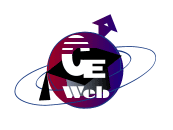| ¡@ |
|
[Meaning in Context] [Word Form]
[College Life]
[Movies]
|
| ¡@ |
| In
high school, you were asked to memorize new words so
that you could understand your reading well. However,
your readings are getting more and more difficult since
new and complicated ideas are developed for you to
understand. You need a very large word bank to sort out
this huge quantity of information. Simply memorizing
spelling is slow and boring for you to develop an
intellectually mature mind. Now you need to find out
some ways to help you read quickly to attain acceptable
comprehension. |
| ¡@ |
|
Increasing
your word bank is your first concern.
This section provides you with efficient skills to build
up your word bank as well as how to judge logical
relationships of words in the context you are reading.
How can you store so great a many words in a word bank?
You need to learn synonyms - words which share similar
meanings, and antonyms - words which have opposite
meanings.
For instance, when you learn ¡§tell
time¡¨, at the same time, you learn
also ¡§keep time¡¨, ¡§count
time¡¨, ¡§measure time¡¨, ¡§keep
track of time¡¨, or even ¡§lose time". |
|
About ¡§time¡¨,
you also know "procrastinate¡¨, ¡§punctual¡¨, ¡§put off¡¨, ¡§
delay¡¨, ¡§ on time" , ¡§postpone¡¨, ¡§deadline¡¨, ¡§time
management¡¨, ¡§schedule¡¨, and so on. See, how efficiently
you are learning ¡V with one shot many birds can fall
into your hand effortlessly.
Secondly, to
collect synonyms or antonyms, you need to consult an
English-English dictionary and sometimes put aside your
bilingual one. |
| ¡@ |
|
The third thing to increase your word bank is to
familiarize yourself with word structure.
Very often an English word is composed of several parts.
Each part has its own meaning. Luckily, very often these
parts are already well-known to you. You put them
together and you find it is the new word which looks
lengthy and difficult at first sight. |
| ¡@ |
|
Sometimes when
you encounter a new word or term, you may have noticed
that
punctuation such
as comma or hyphen follows it. Don¡¦t overlook the
punctuation. It can be the key to your understanding. |
| ¡@ |
|
The last and
most important thing is to understand the meaning of new
words in your reading.
Very often students complain that they don¡¦t understand
their reading even though they have carefully checked
the dictionary. They write down meanings or definitions
from the dictionary. The meaning remains unknown. How
can this happen? Well, you need to learn how to judge
the meaning from the context. Basically, the context
means the content which are the ideas an author is
describing or explaining to you. However, context means
more than ideas. Very often a good reader can perceive
relationships of words or sentences. We call these types
of relationships ¡§cues¡¨ and ¡§clues¡¨ which can provide
you with further explanation or evidence about a new
term, idea, or word. So you must be able to identify
them. Then these cues and clues are your great helper;
very often they are much much greater help than your
teacher who cannot be by your side all the time. |
| ¡@ |
|
Well, these are all you will study in
this section about developing your vocabulary skills.
Now click the buttons and you will see more details
regarding each skill. |
| ¡@ |
| ¡@ |
|
|
¡@ |


